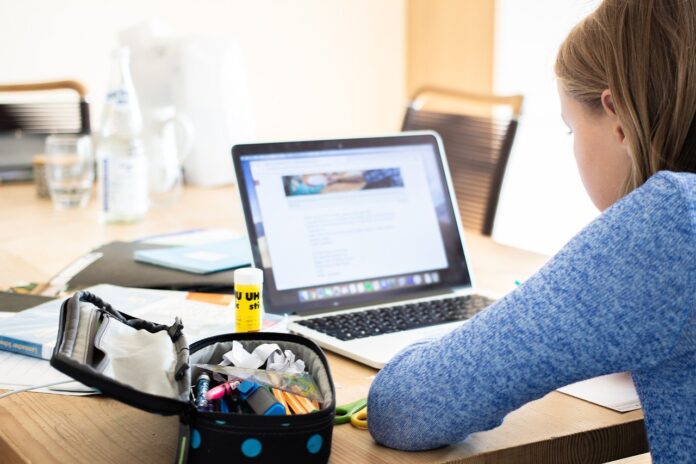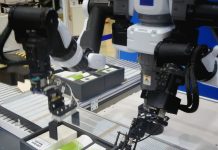There has been a lot of debate among scientists on what skills will be more useful for children in the future. As we all know, the school system we have today doesn’t really correspond to the needs and requirements of the children in the 21st century. We inherited this system from previous generations, and it’s great in many ways, but lacks some important knowledge that children need these days. So what can we do about it? Before taking on the colossal task of reforming the school system, which, no doubt, should be done in its own time, we should pinpoint the skills that are crucial for future adults to be happy and successful.
That’s more difficult than it seems, as we are not entirely sure what the future holds, however, there are some skills we feel certain about.
1. Adjusting to new technology
The fact that this skill comes first in the list is no accident. There are new technologies being developed as we speak, and the ability to use them is crucial for staying up-to-date and in-sync with the times. Of course we don’t just mean being a passive user, but rather encouraging ourselves and our kids to dig a bit deeper and understand the process behind the technology. For example, if you get a cheap 3D printer as a way to pass the time, you can either print a few toys and set it aside, or use this opportunity to practically educate yourself on additive manufacturing, different kinds of filaments, importance of nozzle quality and 3D design.
Each modern invention has decades of work and theory behind it, and its important that our kids are able to comprehend this background, at least to some degree, if they hope to truly understand the technology patterns, and be able to adjust to the changing landscape in this field.
2. Flexibility
The times when we would choose a profession for life are gone, and that’s the new reality for the majority or professions. We have to be ready for changes. Constantly. And flexibility is necessary to any specialist who hopes to stay relevant for longer than a decade.
Many children are naturally well-adjusted to very diverse conditions, some are not,but nonetheless, flexibility is a skill that can be trained and implemented when necessary. Unfortunately, our school system is not designed to encourage that flexibility. So that skill is on us, the parents to teach and train since the early years and on to adulthood.
3. Informational literacy
This skill wasn’t that necessary in the past. But today we live in an absolute abundance of information and making heads and tails of this chaos is necessary if you want to succeed in school, university, or workplace. So we have to teach our kids how to get information they need, while weeding out the sources that are either not relevant, or not trust-worthy.
In the times, when anyone can put out their personal opinion on the internet, and call it fact, we need to be literate enough to be critical of the information wave coming our way, and teach our children the same, if we hope to raise them to be well-educated, critically thinking adults. This brings us to the next order of business.
4. Critical thinking
As we mentioned before, it’s crucial to face the raging chaos of information with some scepticism, if we ever hope to find the valid information that has merit and weed out the nonsense. As parents it’s hard to find the balance between raising a well-behaved child and encouraging some level of skepticism as well, because critical thinking does mean disobedience in many cases. We have to make sure our children don’t follow us blindly but rather give them well-founded reasons for behaving a certain way. This also means taking their scepticism of our decisions seriously, even if they are 5 years old. A child that is thought to follow blindly will not learn to question other people’s opinions and behaviour.
5. Self-reflection
We live in fast-paced times, when hard work is necessary to succeed. But how to measure that success and not get lost in the endless race? Through being attentive to our inner world. And we don’t mean self-reflect our days away, forgetting the tasks at hand. But rather be aware of our natural instincts and inclinations. We should all definitely pay our dues and not shy away from hard work. But if you are a creative and open person, stuck in a cubicle every day, working with numbers rather than people, maybe that’s not really the place to be paying your dues and you need to find a job more suited for your natural talents. If you are a young artist, you’d much rather apprentice at a tattoo salon, than work in retail, right? Both involve long hours and tedious tasks, but one matches your inclinations, and the other one doesn’t. You’d be surprised at how rare the skill of self-reflection actually is. We more often stumble and fall into our natural path than choose it consciously.
If your child is good at math, has a knack for engineering, and is taking apart the washing machine every other month, encourage their natural instincts (while preserving the integrity of the washing machine!) and teach them to follow their built-in patterns as far as that’s possible. Self-reflecting is a skill crucial for children and young adults, and it’s a key element in understanding other people as well, through carefully examining their inner world, the emotions they feel and the decisions they make.
The skills listed above are not a fool-proof guarantee for success, but they can bring us and our kids closer to better quality of life, if we learn to implement them every single day, making them a habit and a natural state of mind.







